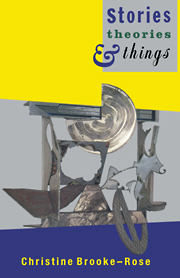18 - Ill wit and good humour
Published online by Cambridge University Press: 20 August 2009
Summary
This chapter is more a light-hearted meditation on women and comic writing than a scholarly analysis, more the pursuit of an intuition, which may be wrong, than an exhaustive investigation. This is because, although I do not think the intuition is wrong, I do think that comedy tends to be killed by exhaustive analysis.
Soap-bubble or ‘text-object’
In Umberto Eco's best-selling novel The Name of the Rose (1980), the solution to all those monkish murders lies in the library's secret possession of Aristotle's lost work on comedy – which is of course fictionally lost again as the monastery burns. This is superbly self-referential comedy, based on both knowledge of rhetoric in general and on the absence of a specific rhetoric of comedy. But I have often wondered whether that supposed loss of Aristotle's supposed work on comedy does not in fact represent the undesirability of theorizing about comedy or analysing it. I don't mean that theorizing about comedy is impossible, merely that it seems more murderous of it. Of course, there are rules, but rules have to do with craftsmanship and production. It seems, however, a peculiar contradiction in terms to analyse what makes us laugh. From Schopenhauer to Freud and beyond, laughter, or the joke, or whatever we call it, seems more like a soap-bubble than an analysable ‘text-object’. Whereas human passions treated on a grand scale or the sadness of the human condition, from classical tragedy through domestic tragedy to the modern weepy, seem somehow more conducive to analysis. But of course, to say that something is unanalysable smacks of old-fashioned idealism, or even, as I. A. Richards put it over sixty years ago, of mystery mongering.
- Type
- Chapter
- Information
- Stories, Theories and Things , pp. 265 - 274Publisher: Cambridge University PressPrint publication year: 1991

